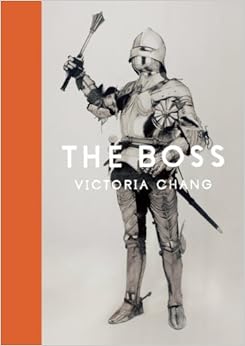McSweeney’s 2013
Review by Luis Martinez
The first poem of the book, “I Once Was a Child,” introduces us to the song-like, incantatory lines that pervade the book, ones that leave the reader asking for an encore. This incantation, a form of repetition, can often be found doing one of two things: calling to arm or the other calling to disarm. Chang, in this book, excellently practices the latter, as she calls to disarm, to undo her father’s memory loss, the firing of her co-workers, and the disillusion that comes after immigrating to America. Chang’s repetition paired with the lack of punctuation hallmark this book as one that wants to unravel, one that is so fast it almost satisfies the speaker’s desperate urge to outrun life and abandon the guilt of being powerless. These poems are by someone coming up for air.
When I read poems, I ask myself, “What are they suggesting? What are they urging?” As a person of color, I found myself empathetic towards and almost disappointed by the first poem’s suggestion that settling in America is not dream-like for other racial groups too. Chang exploring the expectation that an immigrant’s peril and tragedy (getting fired, her father’s strokes) can be left behind as if it were dust being brushed off our coats. We expect to be unclenched, disowned, by these circumstances. The incantation of the first poem calls to undo this sense of being “owned”:
once we sang songs around a piano this land is your land
this land is my land in this land someone always
owns the land in this land someone who owns
the land owns the buildings unless an earthquake
sucks the land in like a long noodle
The want to disarm evolves in her poems on corporate life. In most of these poems, there’s a great sense of guilt, a guilt stemming from powerlessness, one that the writer attempts to write out. We see the speaker using incantation as a way to undo the “fire” so easily spat from her boss onto her coworkers in “The Boss’s Christmas Card”:
…one year after firing
someone she went home she went…
…lifted the boy into her arms…
…she sat down she sat us
down each day she sat the employee down to fire
him…
…each year she fired someone
kind someone competent with a letter
The variations of “fire” ask for the flames, as if the speaker wants them to be directed at her boss. This is a desire so human we wish to see it again in her poems. The guilt of watching a nameless “someone” being fired every year and unable to do anything about it grows into reproach in the last stanza, “where were the bosses to watch her…” Here, we taste the venom distending in the speaker and we, maybe, find ourselves nodding at this.
Chang’s corporate life has made her bear compassionless circumstances. In “The Boss Tells Me,” the speaker, after seeing her boss, “wind them up and point them towards the/ edge of the roof…” throws down a pillow in hope of breaking their fall but in a startling admission, says, “… I didn’t stay long/ enough to see what happened.” This is when Chang’s at her best, when she writes herself to such ugly admissions, when her incantations call to bring things which are out of her control into her control.
The poems share a rich balance of repetition, sharp rhetoric, and ambition. The speaker repeats herself until we are made to feel the urgency in her reiteration of the mundane cruelty of the corporate world, a technique that pulls its weight in “Edward Hopper’s Office In A Small City”:
…maybe the man is
deciding who to hire fire who to layoff who
to slay with a fire maybe he is deciding
who is the best liar to hire…
Chang ultimately dazzles with her repetition: “middle finger does not resemble a bird the bird is/ something with power the bird can fly away.” This is a book that I’ll find myself returning to.
________________________________________
Victoria Chang is the author of Circle (Southern Illinois University,2005), Silvania Molesta (University of Georgia Press, 2008), and The Boss (McSweeney’s, 2013). Her parents were immigrants from Taiwan. She graduated from the University of Michigan, Harvard University, and Stanford Business School. She also has an MFA in poetry from the Warren Wilson MFA Program for Writers where she held a Holden Scholarship. She lives in Southern California and works in business in marketing and communications. Her work has appeared in literary journals and magazines including The Paris Review, The Kenyon Review, Gulf Coast, Virginia Quarterly Review, Slate, Ploughshares, and The Nation.
Read our interview with Victoria Chang here.
Luis Alberto Martinez spent part of the summer at the Bucknell Seminar for Younger Poets and is the recipient of an Academy of American Poets Prize. He lives in San Francisco.

